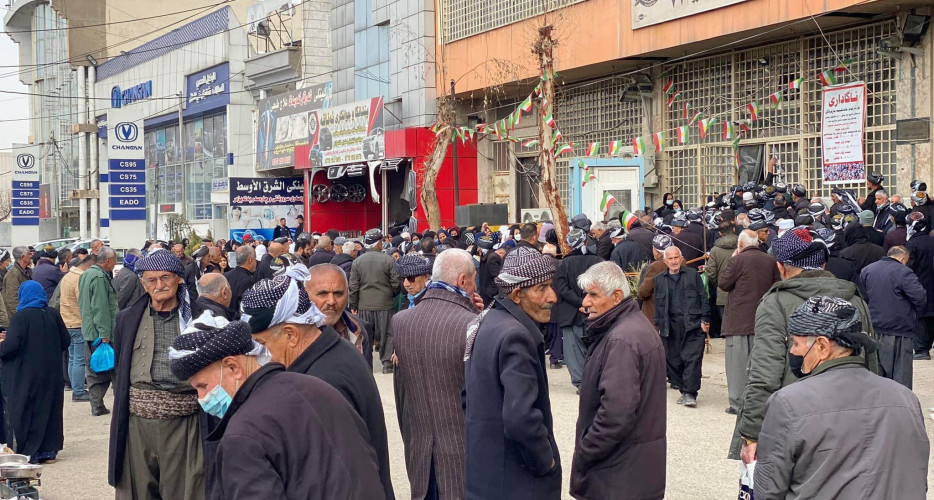
Peregraf- Ghamgin Mohammed
Isolated and depressed, Ibrahim Fatah’s life is very different now.
"The financial crisis has affected my husband mentally so much. He has been under the care of a psychiatrist for four years and has tried to commit suicide several times," Talar Karim told Peregraf.
"He used to be a quiet and independent person. He lived for us," Karim said of her husband, a high school teacher and father of three.
"With [the government] cutting part of his salary during the financial crisis and the landlord coming to the door for rent that we couldn't pay, he became isolated from his family and suffered from depression," she explained.
Fatah is hardly alone in his mental health struggles brought on by a decade of financial crises in the Kurdistan Region. Not a day goes by without a news cycle dominated by concerns about salaries and economic problems, with little prospect for improvement.
In 2014, the Kurdistan Regional Government (KRG) instituted a range austerity measures after Baghdad cut off budget transfers in retaliation for Erbil beginning independent oil exports.
One of them was to withhold between 10 percent and 70 percent of the monthly paychecks of public servants. This lasted until 2019. During this period, 12 monthly salaries were not paid at all and portions of more than 30 other monthly salaries were withheld.
Beyond the financial crisis, decades of poor governance and infighting between the ruling parties means that many residents lack basic services. They live with unreliable water and electricity and have to travel on bad roads. The price of staple commodities like heating oil are volatile.
Many people in the Kurdistan Region have chosen to migrate to Europe because of the lack of opportunities at home.
"All these crises affect the psyche of individuals and every day we see people suffering from anxiety, depression, and fear," Daniel Saadi, a mental health specialist, told Peregraf.
According to the World Health Organization (WHO), one in five people suffers from mental health challenges at some point during their life, including depression and anxiety, which can be caused by things like political conflict, unemployment, and lack of access to basic services.
The people of the Kurdistan Region have endured more than many societies, dealing with the traumas of poverty, genocide, and war.
"Successive crises constantly have a negative impact on individuals and families. Social problems have increased and the rate of divorce has gone up. All this is the effect of successive crises," Choman Ahmad, a social researcher, told Peregraf.
Mental health can also have physical manifestations, including problems eating and sleeping or with addiction, warns Zana Ahmad, a physician and sports expert.
He added that it is important for people to take care of their physical and mental wellbeing and to excercise regularly so that manageable problems do not become chronic illnesses.
"What happens in society every day, whether an individual likes it or not, affects their personality, behavior, thinking, and the images that are formed in their mind," Saadi said.
The economic problems caused by the salary withholding program weigh heavily on people like Fatah.
In response, some Kurdish politicians tried to insert a provision into the federal budget bill that would have forced the KRG to repay 10 percent of the amount it had withheld between 2014 and 2019.
After five days of fierce debate and conflict between parliamentary factions, the Council of Representatives approved a three-year budget, but left out the proposed provision.
As a result, many like Fatah are unsure whether they will ever see the money that they were promised, leaving them even more hopeless than before.